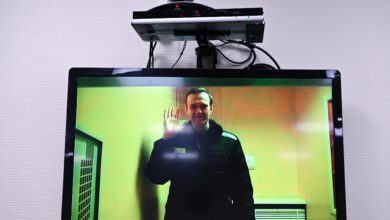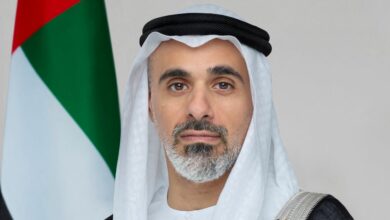I used to get bullied at school when I was younger, by an older boy who (through the haze of sepia-tinted memory) was almost twice my size. It wasn’t excessive or anything like that and didn’t happen everyday. It was rather banal and even at the time I was a bit nonplussed about it.
Then one day when I got home I was watching a children’s program on television that happened to have kids from my school on it and, lo and behold, my bully was one of them. The theme was littering, and the presenter asked him to demonstrate what one was supposed to do with rubbish. In a very docile manner, the boy placed the piece of rubbish in the trashcan at the presenter’s behest. Seeing him in that context was a bit of an epiphany. My my, I thought, he’s just a little kid.
The next morning in school I actually goaded him into coming for me, and I laughed in his face about seeing him the previous day on the tube. He still hit me mind you, but I was laughing as he did. The fear was over. He never did it again, and was mildly conciliatory from then on.
The reason for this rather long-winded introduction is to say that from that day on, I never placed anyone on a pedestal; every person who ever seemed larger than life — whether good or bad — was actually just a little child throwing garbage in a trashcan.
And yet this leaves me at odds with many here in Egypt, who seem desperate in searching for a leader to rally behind. It shows in the nightly television shows where a two-hour appearance is enough for people to scream that they’ve chanced upon the best thing since sliced bread.
Now many have complained that Egypt post-revolution is lacking that leader: the one who will unite all factions and heal internal divisions. Many lament that the names currently on the scene fall well short of that. And they’re not far off from the truth. Yet those who thought Mubarak was a proper leader should reconsider; he was a leader of/through coercion, nothing more.
I’m one of those who loved the fact that the 25 January revolution was not led by a single figurehead.The people were its leaders, its figureheads, and what’s better than that? Nothing at all.
Yes, we’re in a period now where there needs to be viable leadership. The person who will assume the mantle of president in the next election will be ruling at a very pivotal time for Egypt’s future. The next president should have the widest support possible, but as it stands, there isn’t that figure yet on the political scene.
A leader who is willing to hold up the ideals of the revolution — freedom, social justice and economic justice — would be welcome. Yet, those who come closest to upholding such ideals are rarely politicians. They’re more likely to be rights advocates, shop stewards and people fighting the injustices of the political structures of their countries. Think Aung San Suu Kyi in Burma.
And yet that isn’t the real issue in Egypt. It’s the desire to look for a leader that is the bigger problem to my mind because it pushes ordinary under the shadow of a towering figurehead. And soon the people become merely a backdrop to the actions of the great leader — there to clap, cheer and react — like the Chorus in a Greek tragedy while the brave leaders go about their business of war-mongering and gouging out their own eyes.
Presidents are employees of the people. There is a social contract struck between the two sides and when the representative of the people does not cut the mustard, he’s got to go. Many deride Mohammed ElBaradei as uncharismatic and deem him unfit for rule. But what did charismatic leaders do for us? Gamal Abdel-Nasser was charismatic and we’ve been locked into his vision ever since, for better and often for far worse. Uncharismatic fits what I want in a president to a tee.
As you can surmise I’m no fan of leaders, or heroes, because nine times out of ten they get people killed for hubristic reasons. You’re no champion if your heroics are for public consumption and are calculated to whip your people up in frenzy.
I’ll tell you who a real hero is. It’s the elderly man in Tahrir who fought tooth and nail to defend it from Mubarak’s thugs overnight on 2 February. He then went back home, injured, never to be seen or heard from again. No one knows his name or will remember him. He’s one of many, and none of them are likely to run for president, let alone have a chance of winning it.
It’s the doctors who stayed overnight to tend to the wounded. And so many more, who’ll never appear in a television or print interview, and you’ll never hear about again.
Another predicament that arises from the eagerness to find someone to fit some nostalgic notion of the “leader” and the urgency in doing so, is that the person is torn down immediately when he or she doesn’t fit the bill perfectly. The backlash against public figures since 25 January has been incredible, and almost instantaneous. They’re the bees knees one day and the spawn of Satan the very next. It’s that sort of time in Egypt.
Yet I think that all people want here in a leader is someone who fills them with a sense of pride, who will make them feel proud that he’s the one holding the reins (because it’s never going to be a she, is it now?). You’d think that wouldn’t be difficult, but it is, the calibration has to be just so.
Maybe the desire is a vestige of a bygone era, but in today’s world politicians are wheeler-dealers, not men of conviction who stood their ground. The fact is you are the leader you are looking for.
Abdel-Rahman Hussein is a journalist and blogs at Sibilant Egypt. A longer version of this article appeared on his blog.



